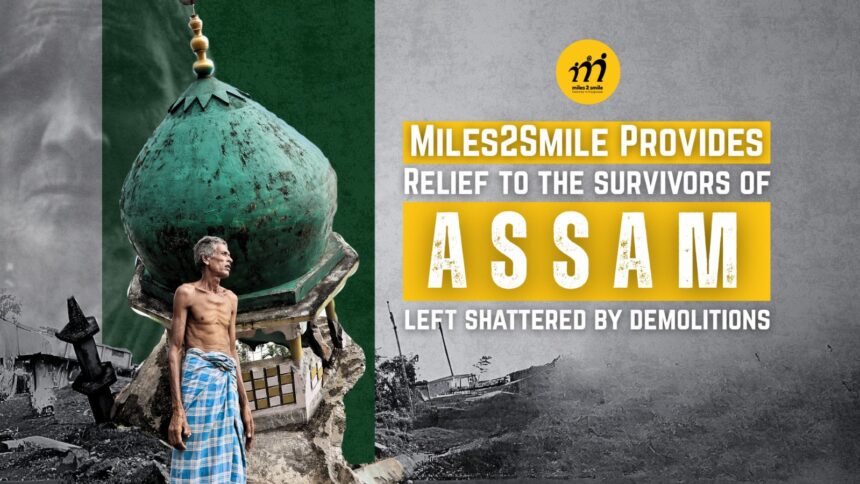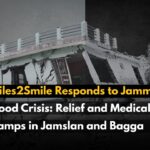The summer of 2025 brought an unforgiving wave of hardship to Assam, particularly for its Bengali-speaking Muslim community. A series of eviction drives swept across the state, clearing thousands of bighas of land. Homes and shops were torn down, leaving families devastated, fearful, and forced to piece together their lives amidst the wreckage of their loss.
In an unusual twist, media reports also claimed that hundreds of residents brought in their own bulldozers and demolished their homes and shops the night before a scheduled operation, effectively “self-demolishing” to comply preemptively with notices and avoid confrontation. While the world remained preoccupied with debates over who was right and who was wrong, Miles2Smile journeyed through the cities and reached Assam to hear the anguished voices of those left behind by the evictions.

At Miles2Smile, we hold the trust of our supporters with the highest regard. Whenever a tragedy unfolds, our first step is to carefully examine the situation, hear the cries of the survivors, and extend our support. The relief work in Assam was one such instance.
What we witnessed and documented was nothing short of unprovoked hatred, ruthless demolitions, and irreparable acts of injustice. Through this press release, we seek to highlight the profound toll these demolitions have taken on the lives of the survivors.

The Survivors Weighed Down by Grief
Miles2Smile spent a week in the camp of the survivors, witnessed their fret, and listened to their cries. Below are a few stories that shattered the hearts of our team.
Anjum, who once lived in a house built through years of hard work, now finds herself standing outside a temporary shelter made of heavy tarpaulin. The sheet traps heat, but it was nothing compared to the scorching impact the demolition drive has left on her life. “The government was there earlier too, so why didn’t they consider it illegal then? They never checked our papers, never looked at anything—just came and demolished it.” Anjum said.

The house Anjum once called her own—a place that was synonymous with laughter, held moments of happiness and sorrow, and carried memories dating back to her grandfather—was torn down within hours under the label of “illegal encroachment.”
Anjum further claimed that, “Our grandfathers, our fathers—we all have documents. They should have checked those… We are Indians, not Bengali Muslims.”
Meanwhile, for Bahatun, the demolition drive has been nothing short of a series of devastating blows. The home she had built over the years was reduced to rubble in a matter of hours, leaving her and her family with nothing but fragments of a life once lived. “We couldn’t do anything, couldn’t take out anything—not even the children’s books,” she said. What was once a place of shelter and stability has now turned into uncertainty, where even the most basic belongings and her children’s education stand buried under the debris.

She now lives under a trampoline provided to her by “public” and eats whatever “public” gives to her, and “When people don’t give me anything, I don’t eat—nothing happens,” she said. Bahatun also highlighted the dire struggle for basic sanitation.
The demolition has stripped families of everything, forcing them to pitch tarpaulins across barren land, scattered like dots with no access to washrooms, bathrooms, or drinking water. Women, in particular, bear the harshest burden of this absence, enduring the indignity and suffering that comes with having “no washroom.”
Shaharana Parveen, whose tent stands beside Anjum’s, has set up a small shop to provide relief to the displaced families. “I opened it so that people here don’t have to travel far for their basic necessities,” she explained.

A single mother, Shaharana had been running her shop with unwavering dedication to make ends meet. Each night she went to bed with the hope of earning the next morning, determined to secure a better future for her son. But that hope was shattered when she was jolted awake by the roar of a JCB. Within hours, her shop—and with it, her only source of income—was reduced to rubble.
At the same time, for days Ibrahim Ali saw the demolition process, and he took the assurance from the authorities that his house would not be demolished, as his house does not come under the category of “illegal encroachment.” However, his house was not spared either. His three big-roomed and two small-roomed houses, along with the washroom and bathroom, were bulldozed too.
“We were neither given any notice nor informed that our home would be demolished, and yet it was torn down. I had asked if we should remove our belongings in case it was going to be demolished, but they told us it was outside the encroachment area and wouldn’t be touched. Still, on the last day, it was demolished.” Ibrahim Ali said.

The demolition drive spared no one, not even children. Abdul Halim now sits quietly by a lake near his makeshift hut, mourning the loss of his education. His house was torn down in the middle of his exam period, leaving him without books or space to study. The anguish of interrupted learning is etched across his face, a silent testimony to dreams put on hold.
Dire Condition in Camp
According to the observation of Miles2Smile, the condition of the detention camp and the people living inside it falls far below the minimum standards of human dignity and survival. The camp, which was set up as a temporary shelter, has turned into a place of suffering for those confined within its boundaries.
One of the most pressing issues is the extreme weather. During the day, unbearable heat traps people inside tents made of thin tarpaulin, offering little to no ventilation. At night or during sudden spells of rain, the camps become waterlogged, with rainwater seeping into sleeping areas and leaving families drenched for hours. This not only creates discomfort but also exposes them to the risk of waterborne diseases.
The problem of sanitation is equally alarming. With inadequate washroom facilities, hundreds of people are forced to wait in long queues for basic needs. Many are left with no choice but to use open spaces, further adding to the unhygienic conditions. The water supply is contaminated and unfit for drinking, making safe hydration another daily struggle.

Across the state, government figures and media tallies show 1.19 lakh bighas of land have been reclaimed since Sarma came to power in 2021, and over 50,000 people have been evicted. The Assam government, led by Chief Minister Himanta Biswa Sarma, frames the eviction drives as routine enforcement of land laws: reclaiming government property (forest land, grazing land, embankments, and other public tracts) and preventing illegal occupation.
Intervention of Miles2Smile
After careful scrutiny of the loss of the survivors, Miles2Smile decided to step in first with immediate respite and later with long-term relief. We constructed 32 sanitation units across 8 camps, with more than half already functional.
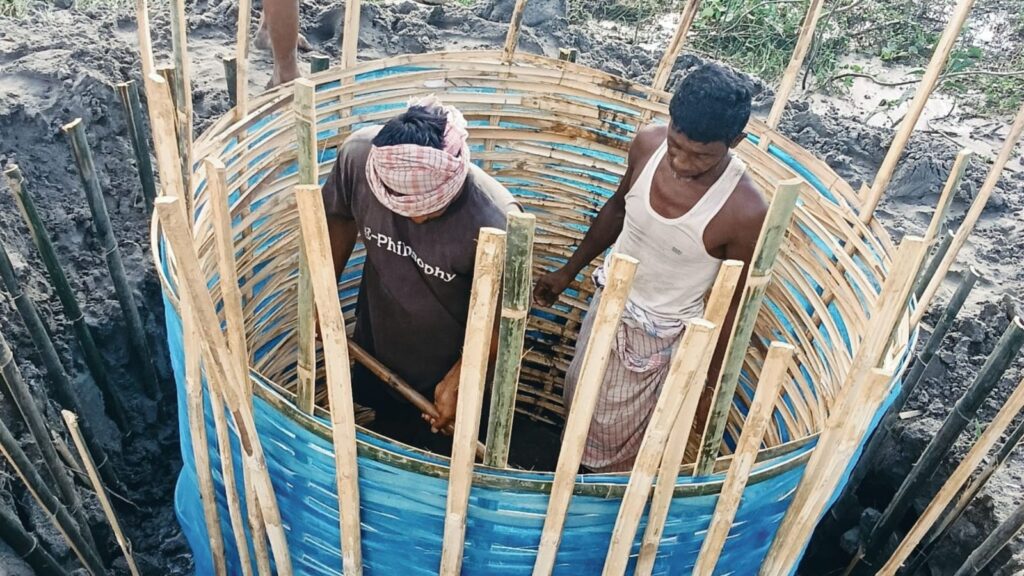
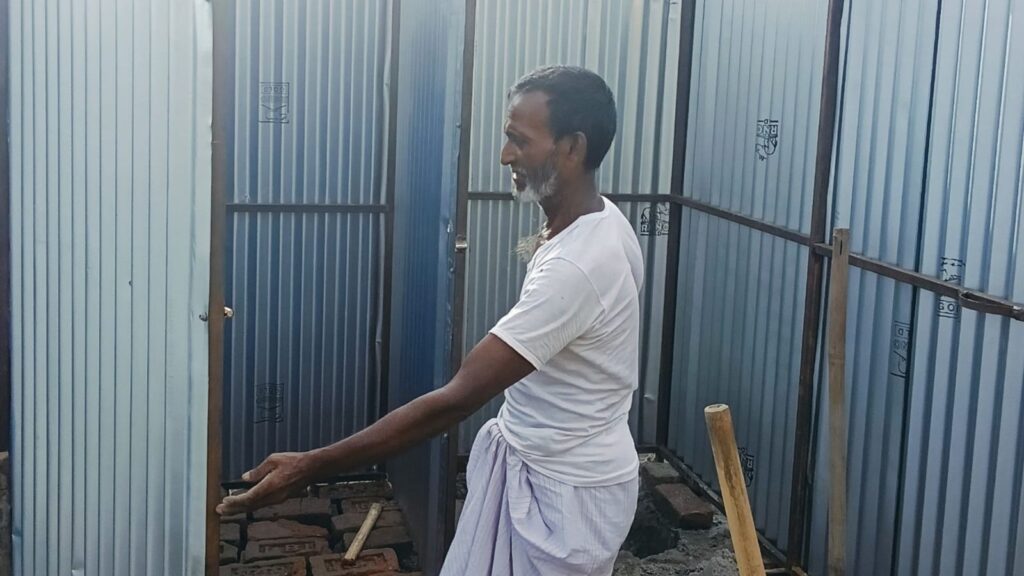
What is underway:
Our long-run mission is to provide durable tarpaulin sheets to shield them from rain and sun, establishing learning centers-cum-libraries and providing students who have had their education disrupted, hygiene kits to go safeguard dignity for women, facilities for clean, drinkable water ease the suffering of thousands, and other essentials make survival easier.
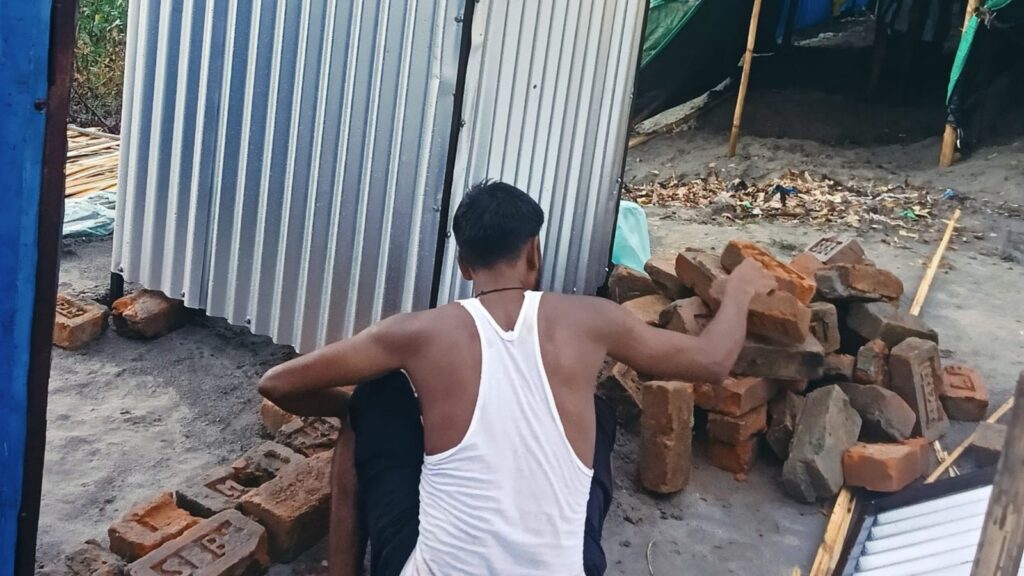
(This is a developing release; our complete relief work is underway.)
About Miles2Smile: Established nearly five years ago, the Miles2Smile Foundation is dedicated to making a positive impact on marginalized communities in India. From the crisis response during the pandemic to ongoing efforts in education and advocacy, the foundation remains steadfast in its commitment to creating a more inclusive and equitable society.


